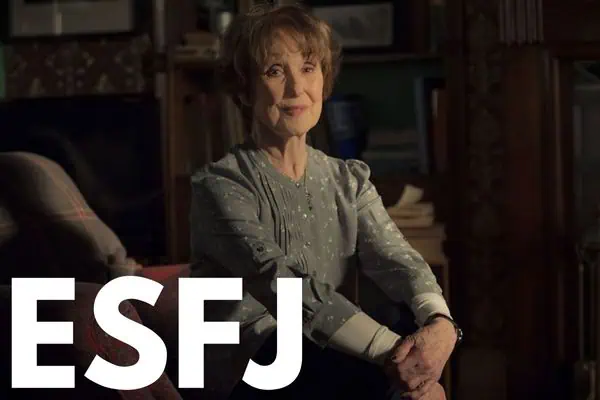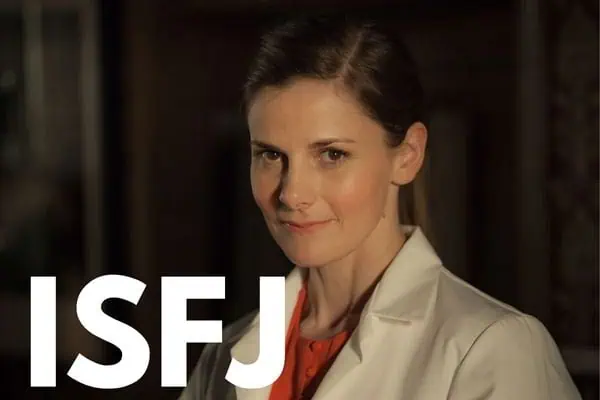The Myers-Briggs® Personality Types of the Sherlock Characters
Want to find out if any of the Sherlock characters have your personality type? As a longtime fan of the BBC series, I’ve been long meaning to break down the character’s personality types, and I hope you’ll have as much fun analyzing them as I do. And when you’re done reading, leave me a comment and let me know if you agree or disagree!
The beauty of Sherlock—aside from Benedict Cumberbatch’s cheekbones doing half the heavy lifting—is in its brilliant, dysfunctional, and oddly lovable cast of characters. Each of them brings a unique energy to the show, from Sherlock’s razor-sharp deductions (and total lack of emotional filter) to John’s quietly exasperated, “I really need new friends” vibe. But here’s the thing: beneath the mystery-solving and witty banter lies a fascinating array of personalities that practically beg to be typed.

And honestly, as a Myers-Briggs® practitioner, I can’t not try to figure it out. It’s like Sherlock with a new case—once you see the clues, you’re in too deep.
So, let’s grab our metaphorical magnifying glass (or tea, or wine, no judgment) and dive into the personality profiles of Sherlock’s cast. Who knows? You might just solve a mystery or two about why you identify a little too much with Molly Hooper’s awkward-but-determined energy. Or maybe not. Either way, it’ll be fun.
Not sure what your personality type is? Take our new personality questionnaire here. Or you can take the official MBTI® here.
The Myers-Briggs® Personality Types of the Sherlock Characters
Table of contents
Estimated reading time: 27 minutes
Sherlock Holmes: ISTP

Sherlock Holmes in BBC’s Sherlock is a walking paradox: cold yet captivating, methodical yet impulsive, detached yet oddly human. He doesn’t just solve mysteries—he dissects them, using his ISTP cognitive functions (Ti-Se-Ni-Fe) to turn every case into an elaborate mental puzzle. But let’s be clear: he’s not pondering the mysteries of the universe for fun (sorry, INTP fans). Sherlock’s brilliance is rooted in practical action and sharp observation, making him the ultimate ISTP.
Sherlock’s Dominant Function:
Sherlock’s thought process revolves around Introverted Thinking (Ti), a function that enables him to analyze problems with ruthless logic. He doesn’t just accept evidence—he questions it, dismantles it, and reassembles it into something coherent and uniquely his own. His quote, “Once you eliminate the impossible, whatever remains, no matter how improbable, must be the truth.” is a powerful example of his Thinking side working alongside his Intuition to arrive at conclusions.
Sherlock’s Auxiliary Function:
His Extraverted Sensing (Se) is what makes him almost superhumanly observant. Sherlock doesn’t just see the world; he interacts with it, pulling clues from details everyone else misses—a scuff on a shoe, a faint cologne, a misplaced object. In one episode, he deduces a man’s occupation from the wear on his watchband and the dirt under his nails. This isn’t abstract genius—it’s physical, sensory immersion. I’ve heard a lot of arguments for INTP, but Sherlock is so steeped in the world of physical details and so hyper-aware of what’s happening around him that Extraverted Sensing is blatantly obvious to me.
Sherlock’s Tertiary Function:
And then there’s Introverted Intuition (Ni), the function that ties it all together. While not dominant, it allows Sherlock to predict outcomes and see patterns, transforming his sharp observations into cohesive deductions. In A Scandal in Bohemia, he doesn’t just find the secret letter—he anticipates Irene Adler’s behavior, using it to outmaneuver her.
Sherlock’s Inferior Function:
But Sherlock’s social skills? Let’s just say they leave something to be desired. His Extraverted Feeling (Fe) is underdeveloped, making him dismissive of emotional nuances and often manipulative in his interactions. He’ll fake an emotional response or exploit someone’s feelings without hesitation. This doesn’t mean he has no concern or care for others, but he typically doesn’t know how to express it (especially with poor Molly Hooper).
Why Sherlock Is an ISTP:
- He’s ruthlessly practical. Sherlock deletes any information he finds irrelevant (like whether the Earth revolves around the Sun) from his mind.
- He thrives on action. Sherlock’s problem-solving is rooted in physical reality, not theoretical “what ifs.” His deductions are immediate and grounded in what he observes.
- He distrusts external systems. Sherlock relies solely on his own internal logic, brushing off anything that doesn’t align with his personal conclusions.
Find out more about ISTPs: ISTP Personality Profile: An In-Depth Look at the Mechanic
John Watson: ISFJ

John Watson in BBC’s Sherlock is the quintessential ISFJ: loyal, grounded, and always ready to keep Sherlock from self-destructing. While Sherlock may dazzle with his chaotic brilliance, John is the steady anchor that keeps their dynamic (and their cases) from spiraling out of control. His ISFJ cognitive functions (Si-Fe-Ti-Ne) shine through in his practicality, emotional awareness, and occasional flashes of quirky creativity.
John’s Dominant Function:
Watson’s Introverted Sensing (Si) dominates his personality, driving his cautious and detail-oriented approach to life. From the moment he meets Sherlock, he’s wary of diving into unknown situations without enough information. “We’ve only just met, and we’re going to look at a flat?” He’s cautious, wary of breaking the rules or taking risks, and tends to chide Sherlock for not behaving in a “practical” way (like refusing jobs when money is tight). But Si isn’t just about hesitation—it’s about preserving what works and providing a steady foundation. Throughout the series, Watson grounds Sherlock’s erratic behavior, reminding him of practical realities like finances, basic manners, and the need for structure.
John’s Auxiliary Function:
His Extraverted Feeling (Fe) makes him the emotional heart of the duo, though it often leads to frustration with Sherlock’s abrasiveness. Watson prioritizes the well-being of others, smoothing over the damage caused by Sherlock’s lack of tact. He apologizes on Sherlock’s behalf, steps in to console victims, and even drinks a sugary coffee he hates because he appreciates the sentiment behind Sherlock’s rare attempt at an apology. His Fe doesn’t make him a pushover, though; Watson’s passive-aggressive quips (“Don’t mind me. I can manage.”) reveal his frustrations when Sherlock takes his loyalty for granted.
John’s Tertiary Function:
Watson’s Introverted Thinking (Ti) keeps his emotions in check, giving him a calm and collected demeanor. He evaluates situations logically, pointing out inconsistencies and emphasizing rationality when Sherlock’s schemes become too far-fetched. “Let’s stick to the facts and what we know,” he says, embodying the mature ISFJ who can balance both emotional awareness and grounded logic.
John’s Inferior Function:
While his Inferior Ne (Extraverted Intuition) isn’t as prominent, it peeks through in moments of humor and unexpected creativity. He leaves a red balloon in his chair as a joke, and when Sherlock poses a hypothetical scenario, Watson eagerly jumps into an elaborate “what-if” story involving Sherlock being roughed up in a small room. These flashes of Ne add a touch of whimsy to his otherwise practical personality.
Why Watson Is an ISFJ:
- He’s rooted in practicality. Watson isn’t preoccupied with abstract theories or long-term visions. His focus is on immediate needs and concrete actions, like solving the case and keeping Sherlock alive.
- He prioritizes tradition and familiarity. Watson thrives in predictable environments and struggles with disruption—hence his frustration with Sherlock’s chaotic tendencies.
- His emotions are tied to others. Watson’s emotional energy is directed outward, toward supporting and protecting those around him.
Discover more about ISFJs: The Two Sides of the ISFJ Personality Type
Jim Moriarty: ENTP

If Sherlock is the surgeon of deduction, Moriarty is the street magician of mayhem. Flashy, unpredictable, and a little too fond of his own brilliance, Moriarty embodies the ENTP archetype at its most unhinged. This isn’t your friendly neighborhood brainstormer. This is what happens when creativity turns into chaos and charm becomes a weapon.
Moriarty’s Dominant Function:
Moriarty is driven by Extraverted Intuition (Ne), his dominant function, which fuels his boundless creativity and penchant for mischief. For him, the world is a giant playground filled with infinite possibilities, each one more outrageous than the last. Where others see boundaries, he sees opportunities. That’s why he’s always two steps ahead, outsmarting even Sherlock. He doesn’t just think outside the box—he sets the box on fire and then convinces you it was your idea.
Take his elaborate schemes, for instance. They’re not just clever—they’re wildly imaginative, almost theatrical. Who else could turn a children’s nursery rhyme into the blueprint for a series of perfectly coordinated crimes? Or fake his own death and still wreak havoc posthumously? This is Ne in overdrive: a relentless stream of ideas and connections, all aimed at keeping everyone guessing—and off balance.
Moriarty’s Auxiliary Function:
Underneath the showmanship lies Introverted Thinking (Ti), giving Moriarty his razor-sharp logic and detachment. He isn’t just chaotic for chaos’s sake. Everything he does is meticulously calculated, even if it doesn’t look like it. Remember his showdown with Sherlock on the roof? It’s a masterclass in Ti precision, every word and move designed to provoke exactly the reaction he wants. He’s energized by strategy but detests predictability, adapting in real-time to keep the upper hand.
Moriarty’s Tertiary Function:
And then there’s Extraverted Feeling (Fe), which Moriarty uses not to connect with others but to manipulate them. He’s a master at reading emotions and vulnerabilities, using them as strings to make his victims dance. His flamboyant, grandiose displays aren’t just for fun—they’re designed to captivate and control. When Moriarty grins and says, “I’m so… changeable!” it’s not just a declaration of unpredictability. It’s a reminder that he can read you like a book and rewrite the ending before you’ve even turned the page.
The ENTP in Villain Mode
- Ne gone rogue: Moriarty’s creativity is boundless, but without ethical grounding, it manifests as chaos. His constant need for novelty means he’s always seeking the next thrill, no matter who gets hurt.
- Ti detachment: He views people as pawns, their lives just pieces in his intellectual game. This allows him to act with chilling rationality, even in the midst of his theatrics.
- Weaponized Fe: Instead of building connections, he exploits them, using his insight into emotions to manipulate, intimidate, and amuse himself.
Find out more about ENTPs: 24 Signs That You’re an ENTP, the Trailblazer Personality Type
Irene Adler: ENTJ

Irene Adler, “The Woman” in BBC’s Sherlock, is the embodiment of an ENTJ: bold, strategic, and always in control—at least, until Sherlock enters the picture. Her ENTJ cognitive functions (Te-Ni-Se-Fi) make her a force to be reckoned with, blending razor-sharp logic with an almost seductive charisma. Adler’s strength lies in her ability to dominate every room she walks into, whether by the sheer force of her intellect or the carefully calculated removal of her clothes.
Adler’s Dominant Function:
Adler’s Extraverted Thinking (Te) is her driving force, pushing her to take charge of situations with precision and efficiency. She’s not interested in knowledge for knowledge’s sake—she’s interested in how it can be used. This is a big difference between TJ and TP personality types. TJ types need their knowledge to have an application; whereas TP types enjoy knowledge for its own sake. Adler is a schemer, and she uses knowledge to exploit people and get the upper hand and protection. Every word, every action is part of her larger plan to stay ahead.
Another sign that Adler is a TJ is the way she communicates. She speaks with a level of directness that leaves no room for ambiguity, asserting her dominance with both her words and her actions.
Adler’s Auxiliary Function:
Her Introverted Intuition (Ni) makes her the consummate strategist. Irene doesn’t just act—she plans. Every move she makes is calculated, part of a larger vision that she’s constantly refining. She predicts how situations might unfold and adjusts her approach in real time, staying five steps ahead of everyone except Sherlock. And while Sherlock and Watson are hunting her down they can’t help but be impressed by her prowess and ambition. Her singular focus on her goals allows her to maintain control even when the stakes are high.
Adler’s Tertiary Function:
Extraverted Sensing (Se) gives Adler her adaptability and flair for the dramatic. She isn’t afraid to use her physical presence to gain the upper hand, whether by revealing her bodily measurements as a code or navigating high-stakes situations with almost reckless confidence. Her ability to observe and react to immediate details keeps her plans grounded in the here and now, even as her Ni is busy mapping out the bigger picture. But this impulsivity can also lead to mistakes, as she sometimes lets her confidence in the moment outweigh her long-term strategy.
Adler’s Inferior Function:
Lastly, Introverted Feeling (Fi) drives Adler’s deeply personal motivations. She operates according to her own wants and desires, prioritizing her needs over societal expectations. #ProtectMyself might as well be her personal motto. While she uses logic to achieve her goals, her Fi reveals itself in moments of vulnerability—particularly in her complicated relationship with Sherlock. Despite her calculated exterior, she falls for him, showing that even a commanding ENTJ isn’t immune to the pull of emotion.
Find out more about ENTJs: How ENTJs Say “I Love You”
Mycroft Holmes: ESTJ

Mycroft, the self-proclaimed “British government” is the quintessential ESTJ: pragmatic, detail-oriented, and allergic to anything resembling sentimentality. Mycroft’s world is one of structure, strategy, and (let’s face it) a fair amount of micromanaging.
Mycroft’s Dominant Function:
Mycroft’s Extraverted Thinking (Te) runs the show and it drives his need to be in charge. Need a fake terrorist plot? Mycroft’s got you. Require a beautiful spy to lure Watson into a car? Already done. When his plans go awry—often thanks to Sherlock—he opts for the quickest, most efficient fix, even if it’s a bit ruthless. Te doesn’t do nuance when the stakes are high.
Mycroft’s Inferior Function:
And yet, lurking beneath all that logic is Introverted Feeling (Fi), his Achilles’ heel. Mycroft would sooner deny it, of course, but his actions speak louder than his clipped tone and icy exterior. He invests an inordinate amount of time and energy in Sherlock, whether it’s mentoring him, reigning him in, or quietly cleaning up his messes. Sure, he claims sentiment has no place in his life, but then he turns around and declares, “Your loss would break my heart.” In my experience this is a perfect example of inferior Fi—repressed but undeniably there.
Mycroft’s Auxiliary Function:
When it comes to Introverted Sensing (Si), Mycroft is meticulous, detail-focused, and deeply rooted in tradition. He pulls from past experiences and lessons, using them to analyze patterns and predict behavior—especially Sherlock’s. He references childhood memories and literary works with ease, showcasing his respect for the classics and a sense of propriety that puts him at odds with his brother’s… well, lack of propriety. Sherlock lives in chaos; Mycroft thrives in order. Their sibling dynamic is basically entropy vs. spreadsheets.
Mycroft’s Tertiary Function:
That said, Mycroft’s Extraverted Intuition (Ne) adds a touch of flexibility to his otherwise rigid nature. While he prefers structured plans, he’s fully capable of thinking on his feet and adapting when necessary. He plays the “balance of probability” game, calculating potential outcomes and preparing contingencies for all of them. But even Mycroft has blind spots, particularly when it comes to emotional complexity. His loyalty to his family often clouds his judgment, as seen with his disastrous decision to keep Eurus alive. For all his brilliance, he sometimes misses the forest for the trees—or, more specifically, the ticking time bomb for the unstable genius.
Mycroft’s ESTJ Superpowers (and Weaknesses)
- Te dominance: He’s the king of efficiency and control, orchestrating elaborate schemes and making snap decisions when things go south.
- Fi vulnerability: Beneath the facade of pragmatism lies a deeply personal (if reluctant) love for his family that frequently sabotages his detached logic.
- Si steadiness: He relies on past lessons and traditions to inform his actions, which makes him a grounding force but also a bit rigid.
- Ne adaptability: While not his strong suit, Mycroft can juggle possibilities and pivot when needed—though he prefers not to.
Eurus Holmes: INFJ

Eurus Holmes, the ultimate wild card of BBC’s Sherlock, is a chilling portrayal of an INFJ gone rogue. With her mastery of psychological games, unnerving ability to anticipate outcomes, and eerie detachment from conventional morality, Eurus embodies the shadow side of the INFJ archetype. She’s the visionary INFJ who uses her gifts not to guide and heal but to manipulate and destroy—and she does it all with an unsettling calm that’s equal parts genius and nightmare.
I almost never find a good INFJ villain, so I was pretty excited to discover Eurus!
Eurus’s Dominant Function:
At the core of Eurus’s personality is Introverted Intuition (Ni), which manifests in her ability to see patterns and possibilities others can’t even begin to comprehend. As a child, Mycroft described her as seeing things she “shouldn’t,” intuiting truths that seemed beyond her age or experience. Eurus doesn’t just analyze events—she orchestrates them, often years in advance. Her entire web of schemes, from Moriarty’s posthumous chaos to her own mind-bending games, is a testament to Ni’s ability to focus on long-term outcomes while accounting for every possible contingency. The infamous Redbeard puzzle? A deeply metaphorical, highly subjective Ni creation that only she could fully understand.
Eurus’s Auxiliary Function:
Her Extraverted Feeling (Fe) takes this eerie insight into darker territory. Eurus is a master manipulator of emotions, exploiting the vulnerabilities of everyone around her. She doesn’t just predict how people will feel—she weaponizes it. From forcing Sherlock to extract a love confession from Molly to using a terrified child’s cries to elicit empathy, Eurus designs her games to break people emotionally. And let’s not forget her ability to charm and deceive: she effortlessly convinces Watson to engage in a flirty texting relationship and poses as a therapist to gain intimate access to his mind. For Eurus, Fe isn’t about fostering harmony; it’s about pulling the strings of human emotion to serve her agenda.
Eurus’s Tertiary Function:
Despite her emotional manipulations, Eurus’s Introverted Thinking (Ti) drives her detached, experimental view of humanity. She treats people as puzzles to be solved, pawns to be moved around her elaborate chessboard. There’s no clear purpose to her games beyond satisfying her own abstract intellectual curiosity. Her cruelty is clinical, not personal—she views human behavior as something to be dissected, analyzed, and understood, much like a scientist studying lab rats. It’s this chilling detachment that makes her such a terrifying force. When Sherlock, John, and Mycroft refuse to play her games on her terms, her fascination with their choices only deepens.
Eurus’s Inferior Function:
Extraverted Sensing (Se) is her weakest function but still plays a role in her chilling effectiveness. Eurus generally operates from behind the scenes, carefully planning her moves before acting. But when she does engage with the physical world, she does so with shocking brutality. Whether it’s dismembering a nurse in a fit of overindulgence or ending someone without hesitation, her Se shows itself in bursts of impulsive, visceral action. These moments remind us that, while Eurus prefers to control from a distance, she’s not afraid to get her hands dirty when the situation demands it.
Why Eurus Is an INFJ:
- Ni dominance: Her plans are driven by long-term vision and deeply symbolic puzzles.
- Fe manipulation: She’s emotionally attuned enough to manipulate others with precision, a skill more aligned with Fe than the detached logic of Te.
- Ti detachment: Eurus uses Ti as a lens for abstract, almost philosophical experimentation.
Discover more about INFJs: The 3 Best Matches for the INFJ Personality Type
Mary Watson: ENFJ

Mary Watson is one of the most fascinating characters in Sherlock, not just because of her mysterious past, but because of how deeply layered and human she is. Sweet and lively on the surface, calculating and ruthless underneath, Mary’s ENFJ personality type drives her to connect with others, lead with charisma, and protect those she loves—sometimes at great personal cost.
Mary’s Dominant Function:
At her core, Mary is an Extraverted Feeling (Fe) powerhouse. She intuitively understands people, reading emotions like an open book and using this insight to charm, disarm, and sometimes manipulate. Whether she’s comforting John or outwitting Sherlock, Mary’s ability to connect emotionally is unmatched. It’s this emotional intelligence that makes her a perfect match for John Watson, even though she occasionally weaponizes it. ENFJs have a knack for making people feel seen, valued, and understood, and Mary does all of that while hiding her assassin-level tactical skills.
But that’s where the plot thickens. While her Fe is warm and magnetic, it’s also a tool she uses to achieve her goals. I’ve seen ENFJs who remind me of Mary in my time as an MBTI® practitioner—people who can light up a room while quietly controlling the dynamics of it. It’s a double-edged sword. When ENFJs are healthy, they bring out the best in others. When they’re under stress or in survival mode, they can be calculating, even manipulative. Mary’s past as an assassin shows how far she’s willing to go to protect herself and those she loves, even if it means taking lives or spinning elaborate deceptions.
Mary’s Auxiliary Function:
Mary’s Introverted Intuition (Ni) gives her the ability to see patterns and outcomes long before they happen. She’s a strategic thinker, always planning her next move and calculating the risks. Even in high-stakes situations, her Ni helps her stay calm and focused, whether she’s taking out a threat with perfect aim or crafting a flawless cover story. Ni paired with Fe creates someone who doesn’t just respond to situations but orchestrates them, often from behind the scenes.
Mary’s Tertiary Function:
Her Extroverted Sensing (Se) is where the action comes in. When Mary acts, she acts decisively, whether it’s shooting a coin out of the air or taking a bullet to save Sherlock. ENFJs like Mary don’t often rely on Se as their main function, but when they do, it’s striking. She’s quick, resourceful, and doesn’t hesitate to engage with the physical world when the moment demands it. That said, she’s much more comfortable staying in control from a distance, using her intellect and emotional insight rather than brute force.
Mary’s Inferior Function:
Where Mary gets truly complicated is her Introverted Thinking (Ti). ENFJs typically use Ti as a support function, and in Mary’s case, it drives her to analyze situations and people with surgical precision. But Ti in an ENFJ can feel detached, even cold, and we see that in her darker moments. Her ability to make clinical, unemotional decisions—decisions that could hurt the people she loves-shows how her Ti can override her usual Fe warmth. It’s unsettling, but it’s also what makes her so compelling.
The ENFJ in Mary’s Story
- Fe charm and complexity: Mary uses her Fe to connect and protect, but also to manipulate and control when necessary.
- Ni foresight: She’s always thinking five steps ahead, creating complex plans that often outwit everyone around her.
- Se action under pressure: When the stakes are high, Mary acts with tactical precision and confidence, whether she’s taking a shot or shielding her family.
Martha Hudson: ESFJ

Mrs. Hudson, the ever-charming landlady of 221B Baker Street, is the beating heart of Sherlock. Equal parts nosy neighbor, doting caretaker, and comedic relief, she’s the perfect blend of an ESFJ’s warmth, sentimentality, and occasional quirks. Though she insists she’s “not your housekeeper,” her natural inclination to nurture and keep the peace makes her a surrogate mother figure to both Sherlock and Watson—whether they like it or not.
Martha’s Dominant Function:
At the core of Mrs. Hudson’s personality is Extraverted Feeling (Fe), which drives her relentless care for everyone in her orbit. She’s unconditionally kind, forgiving, and deeply attuned to the emotions of others. When Watson first arrives, she instantly picks up on the vibe (or what she thinks is the vibe) between him and Sherlock, trying to smooth over any potential awkwardness with her now-iconic line about Mrs. Turner’s married ones next door. This is classic Fe: instinctively reading the emotional room and stepping in to make things more comfortable—sometimes in hilariously misguided ways.
Martha’s Auxiliary Function:
Her Introverted Sensing (Si) adds layers of sentimentality and tradition to her character. Mrs. Hudson often reminisces about her past, recalling even the tiniest details of her life experiences with vivid clarity. From her memories of her late husband to her delight in familiar routines, her Si keeps her grounded in her personal history. But it also makes her a bit naïve—she’s overly trusting, sometimes to a dangerous degree. Whether it’s her questionable friendships or her obliviousness to darker truths (like Sherlock’s penchant for bending the law), her Si sometimes blinds her to reality.
Martha’s Tertiary Function:
Mrs. Hudson’s Extraverted Intuition (Ne) pops up in her quirks and surprising insights. While she’s deeply rooted in tradition, she’s also open to considering outlandish possibilities—like assuming Sherlock and Watson are a couple. (Admit it: you’ve thought it too.) This occasional leap into the unexpected adds a delightful unpredictability to her character, making her more than just the sweet landlady stereotype.
Martha’s Inferior Function:
Her Introverted Thinking (Ti) is her weakest link, which is no surprise given her warm, people-focused nature. Mrs. Hudson doesn’t rely much on cold, detached logic, often prioritizing relationships and harmony over rational analysis. This can lead her into trouble, like when she overlooks red flags in people she cares about. But her Ti also shows up in moments of practicality—she has a surprising amount of grit and resourcefulness when the situation demands it, as seen in her unwavering loyalty to Sherlock and Watson despite the chaos they bring into her life.
Why Mrs. Hudson Is an ESFJ
- Fe dominance: Her life revolves around nurturing and supporting others, even when it’s not her job (or when Sherlock insists she stop).
- Si sentimentality: She holds onto traditions, memories, and routines, sometimes to the point of overlooking present realities.
- Ne quirks: Her occasional flights of fancy and open-mindedness make her a delightful wildcard.
- Ti blind spots: Her aversion to cold logic and reliance on personal experience leave her vulnerable to manipulation.
Molly Hooper: ISFJ

Molly Hooper may seem like a minor character in Sherlock, but her quiet strength and deep loyalty make her one of the most compelling personalities in the series. An ISFJ to her core, Molly’s blend of nurturing care, deep emotional understanding, and understated determination plays a crucial role in the story—particularly in her interactions with Sherlock. She’s the steady presence who sees him, understands him, and supports him, even when he’s saying things that make her feel awkward and hurt.
Molly’s Dominant Function:
At the heart of Molly’s personality is Introverted Sensing (Si), which drives her extreme attention to detail. This function shows up in her straightforward, almost clinical observations in the morgue—“67, natural causes, used to work here, I knew him, he was nice.” Her Si prioritizes clear, factual information grounded in personal experience, but it also adds a layer of sentimentality.
Molly’s Auxiliary Function:
Her Extraverted Feeling (Fe) is where Molly truly shines. She’s deeply attuned to the emotional needs of others, often prioritizing harmony and care over her own feelings. Molly’s Fe drives her unwavering support for Sherlock, even when he’s dismissive or manipulative. When he mocks her or uses her feelings against her, Molly doesn’t lash out or walk away—instead, she stays, quietly showing up for him time and time again. Fe also explains her ability to intuitively understand Sherlock’s pain when others miss it, as well as her efforts to smooth over tense situations, like asking after Mrs. Hudson’s hip at Christmas.
Molly’s Tertiary Function:
Molly’s Introverted Thinking (Ti) is most evident in her work. As a pathologist, she relies on her logical mind to make objective assessments, even in emotionally charged situations. Her analysis of cadavers, for instance, is detached and clinical, even when her emotions are charged. When Sherlock asks for her professional opinion or needs her help in solving cases, Molly consistently delivers clear, rational input, even if it means putting aside her feelings for him.
Molly’s Inferior Function:
Where Molly’s Inferior Extraverted Intuition (Ne) shows up is often in her attempts to connect with Sherlock on his level. She occasionally makes quirky jokes (“having a bad day?” during the corpse-punching scene) or entertains his unusual requests, but these moments are rare and typically cooperative. Ne isn’t her comfort zone; she’s far more grounded and straightforward (Si) than random and abstract in her focus (Ne). When faced with Sherlock’s assertion that Jim from IT is gay, Molly sticks to what she knows, requiring concrete evidence before revising her beliefs.
Why Molly Is an ISFJ
- Si loyalty and detail: Her grounded observations, sentimental comments, and straightforward communication all point to dominant Si.
- Fe emotional attunement: Molly prioritizes the needs of others, smoothing over conflict and supporting her friends with quiet determination.
- Inferior Ne: She rarely explores abstract or speculative ideas, sticking instead to what she knows and trusts.
Greg Lestrade: ISTJ

Greg Lestrade, the detective inspector of Scotland Yard, is the epitome of an ISTJ: grounded, dependable, and utterly exasperated by the whirlwind of chaos that is Sherlock Holmes. He’s the guy holding it all together—part law enforcer, part reluctant babysitter, and part human shield between Sherlock and the rest of the police force. If Sherlock is a hurricane, Lestrade is the weathered lighthouse, standing firm even as everything around him descends into madness.
Lestrade’s Dominant Function:
At his core, Lestrade is driven by Introverted Sensing (Si). He’s detail-oriented, methodical, and deeply committed to maintaining order in a city that seems intent on tearing itself apart. Lestrade works by the book—not because he’s unimaginative, but because the book works. Procedures exist for a reason, and as much as Sherlock might roll his eyes at them, they’re what keep the system running. Lestrade’s Si also makes him loyal to a fault. No matter how much Sherlock insults him, oversteps boundaries, or tramples on protocol, Lestrade sticks by him. Why? Because Sherlock gets results, and for Lestrade, results matter more than ego.
Lestrade’s Auxiliary Function:
That said, his Extraverted Thinking (Te) gives him a practical edge. Lestrade doesn’t have time for abstract theorizing or drawn-out debates; he needs solutions, and he needs them now. When a case is unsolvable by conventional means, Lestrade swallows his pride and calls Sherlock. He’s not thrilled about it, but his Te recognizes that it’s the most effective option. And if that means enduring Sherlock’s condescension, so be it. Lestrade has thick skin, and his patience is practically Herculean.
Lestrade’s Tertiary Function:
Lestrade’s Introverted Feeling (Fi) isn’t obvious, but it’s there, quietly shaping his decisions and relationships. He genuinely cares about the people around him, even if he doesn’t always show it. He trusts Sherlock, not just because he’s brilliant, but because he knows Sherlock’s heart is (mostly) in the right place. This same Fi drives his sense of justice, ensuring that every case he tackles isn’t just about solving a crime but about restoring balance and protecting the vulnerable.
Lestrade’s Inferior Function:
And then there’s his Extraverted Intuition (Ne), which occasionally pops up in his exasperated interactions with Sherlock. While Lestrade prefers structure, he’s flexible enough to roll with Sherlock’s eccentricities—or at least tolerate them. When Sherlock pulls some bizarre deduction out of nowhere, Lestrade doesn’t question it too much. He’s learned to adapt to the unpredictable, even if it drives him up the wall.
Why Lestrade Is an ISTJ
- Si focus: Lestrade relies on structure, procedure, and past experiences to guide his work.
- Te practicality: He’s all about efficiency and results, even if it means bending his pride to work with Sherlock.
- Fi loyalty: His dedication to justice and his quiet care for others drive his decisions, making him both a steady officer and a dependable friend.
- Inferior Ne: While he prefers routine, Lestrade can adapt to Sherlock’s unpredictability (with a sigh and maybe a headache).
What Do You Think?
Do you agree with my assessments or do you have a different opinion? Let me know! Which character do you relate to most? Let us know your thoughts in the comments!
Discover more about your personality type in our eBooks, Discovering You: Unlocking the Power of Personality Type, The INFJ – Understanding the Mystic, The INFP – Understanding the Dreamer, and The INTJ – Understanding the Strategist.
Other Articles You Might Enjoy:
The Myers-Briggs® Personality Types of the Game of Thrones Characters
The Myers-Briggs® Personality Types of the Peaky Blinders Characters
Here’s the Bridgerton Character You’d Be, Based On Your Personality Type











